Moving Out and Taking In: EMI Perspectives from Thailand and Taiwan
【Article by EMI Resource Center】
The EMI Resource Center and the Bilingual Education and Multicultural Promotion Office at National Chengchi University co-hosted an international talk on April 22nd 2024 (Monday), titled'EMI in Thailand', featuring two keynote speakers: Dr. Rachanee Dersingh and Assistant Professor Thanis Tangkitjaroenkun from King Mongkut's University of Technology Thonburi in Thailand, along with the teaching sharing by three professors from NCCU: Associate Professor Yi-ling Lin from the Department of Management and Information System, Associate Professor Yu-Hsuan Su from the Graduate Institute of Development Studies, and Assistant Professor Owen H.T. Lu from the International College of Innovation. The event took place in the Conference Room No. 3 of the Administration Building on the NCCU campus, attended by both faculties and students from NCCU and attendees from other universities online, providing an insightful account of the EMI (English as the medium of instruction) contexts in Thailand and Taiwan from various perspectives. The hybrid event, led by Professor Siaw-Fong Chung, the center director, saw participation from both NCCU faculties and students as well as attendees from other institutions online.
EMI has been in existence in Thailand for over seven decades, and has become increasingly prevalent, owing to factors such as enhancing career and educational opportunities, supporting the economy sector and improving language accuracy, along with the two 15-year plans starting in 1990, according to Dr. Dersingh. Nowadays, there are at least 400 bilingual schools and international schools all over the nation, in which the number of international programs was doubled from 2018 to 2024.
Despite the widespread prevalence of EMI in Thailand, it does not mean that there is no challenge ahead, namely teachers' proficiency levels and qualifications, the approaches and expectations in pedagogy, and cultural considerations. In EMI classrooms in Thailand, first language is still commonly used since it is regarded to be necessary to let students understand, and they feel more confident in using their mother tongue in sharing, while the use of English is not commonly extended to outside classes.
In order to deal with such challenges, Dr. Dersingh pointed out that support for teachers and students is rendered. For the former, collaboration between content teachers and language teachers are adopted. For the latter, especially those taking international programs, support such as writing clinics is offered. At the same time, both keynote speakers emphasized the importance of the'languaging curriculum' to learn English, and already introduced three courses based on this curriculum. In the'languaging curriculum', the process and the communication of meaning, rather than product and accuracy, are considered to be the goal of language learning. Students are expected to learn English in real-world contexts under a non-judgmental approach and do things with English through the strategic use of available tools and real-life platforms, such as Reddit and Wikipedia, boosting their confidence and creating their sense of achievement.
Associate Professor Yi-ling Lin has her Programming Language course in the School of Commerce taught in EMI. She finds that although her students enjoyed the classes, they may still not understand the concepts because some of them are complicated. Therefore, she has to be very clear when introducing object-oriented items in English. In order to further facilitate easy understanding among students, flipped classrooms are included in addition to regular lectures: students are required to preview English-taught teaching videos along with activities designed by her before class in order that they can familiarize themselves with the important concepts in advance. In addition, she notices that students in Taiwan are quite shy in class, so she asks them to raise questions anonymously online and discuss their final projects with her after class. She also encourages them to take part in MIS Capstone presentations so as to know how seniors solve real-world problems.
Associate Professor Yu-hsuan Su taught in the University of Washington before joining NCCU, so she has abundant experience in EMI teaching and now teaches three EMI courses. In addition, she is a member of the EMI Faculty Professional Development Community in the College of Social Sciences, whose members have their own experience in EMI teaching. The Community also invites professors from other universities with EMI teaching experience for sharing and they even enter the classes of local professors to see any improvement in EMI strategies. Besides introducing flipped classrooms and giving assignments beforehand like what Prof. Lin does, Prof. Su is aware of students' attention span in EMI classes, so she has her EMI teaching in various 18-minute loops in every lesson, which is conducive to students' focus.
Assistant Professor Owen H.T. Lu started teaching in EMI in 2020. In fact, all the courses provided by the International College of Innovation, where he is working, are EMI courses. At the beginning of his EMI teaching, he faced challenges because no one taught him how to teach in EMI. In order to improve his EMI competence, like Prof. Su, his College invites experts to oversee lessons and provide pedagogical tips, and he breaks up his lectures into several 18-minute chunks, with brief time in between for peer debriefing, which serves as a beneficial means to facilitate students' focus. Also, same as Prof. Lin, he encourages his students to ask questions online and involves them to design EMI-teaching content. Furthermore, he talks with his Taiwanese students in Chinese, which is the same as what is highlighted by the two Thai keynote speakers. Later Prof. Lu developed an excellent rapport with students, and those who are good in English even try to correct his English, which he feels very happy about and made him improve his EMI competence.
We extend our gratitude to the two keynote speakers and the three sharing professors for their insightful contributions, expanding our understanding of EMI in real classroom contexts in both Taiwan and Thailand. The EMI Resource Center is co-hosting the DRAL 5 2024 International Conference to be held in Bangkok, Thailand on September 5th–7th 2024, so as to deepen our knowledge in EMI and exhibit the implementation of EMI in Taiwan all over the world.
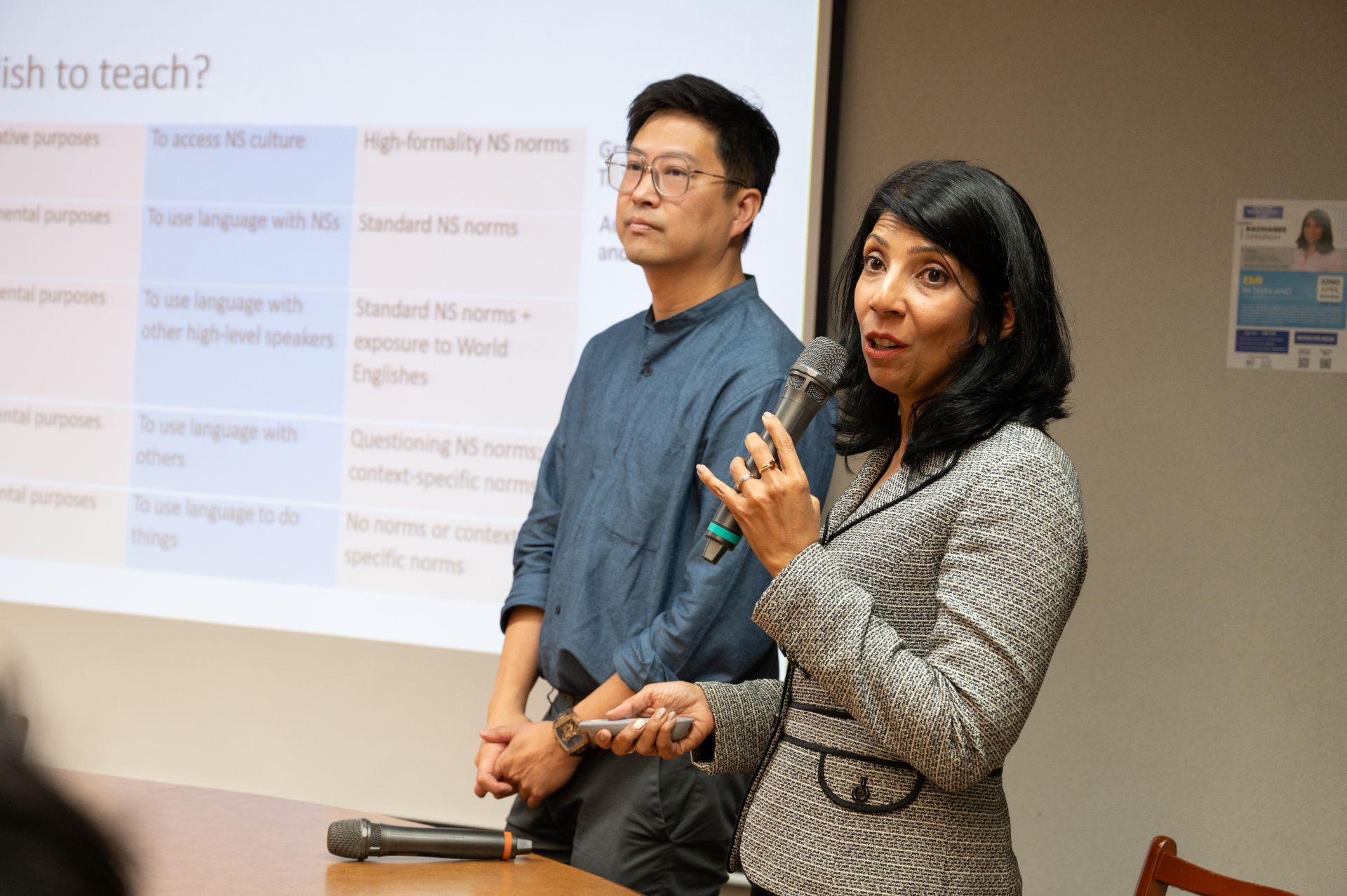
Dr. Rachanee Dersingh shares the pedagogic objectives and strategies of EMI in Thailand. (Photo by EMI Resource Center)
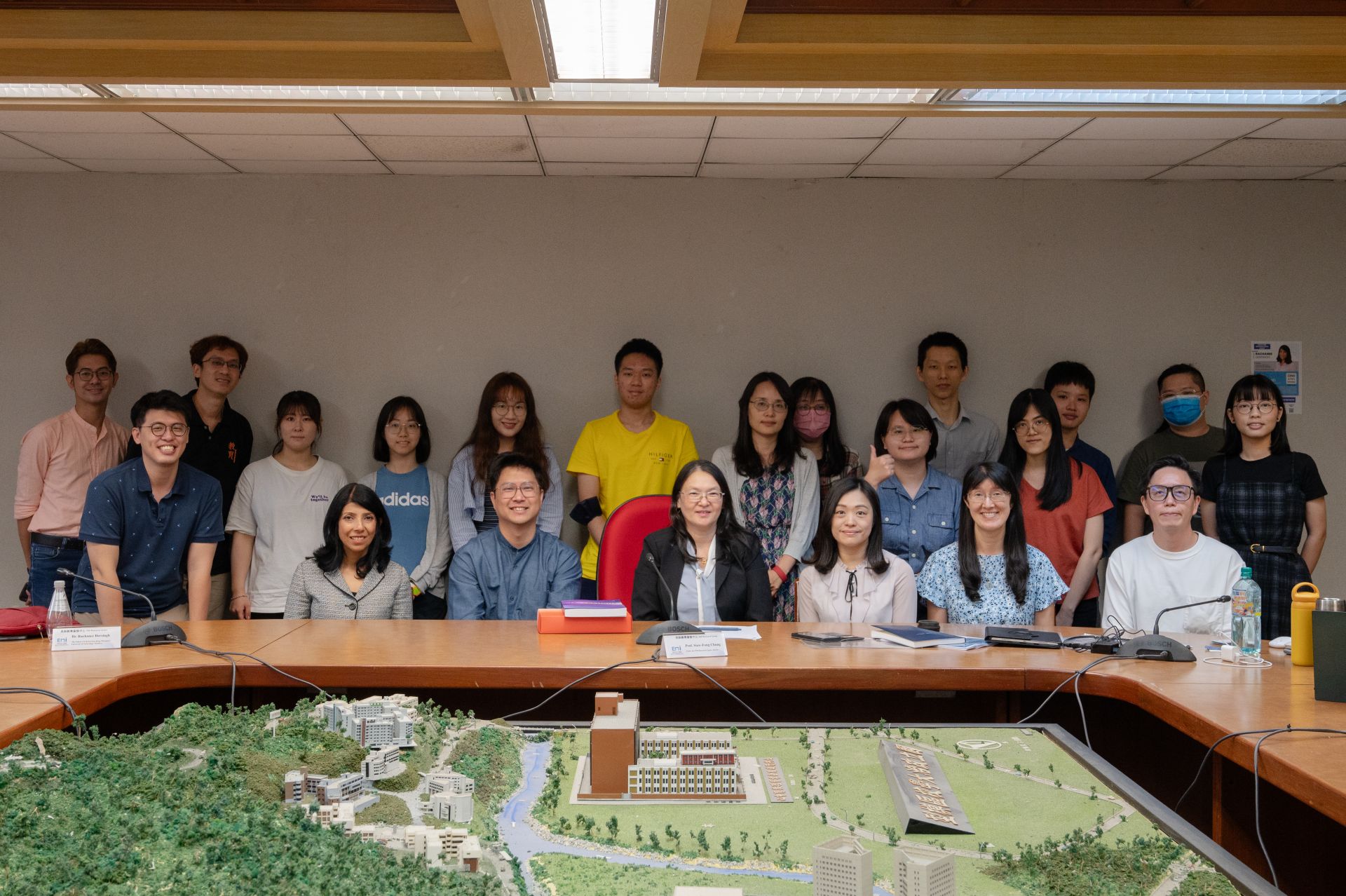
Group photo (front row, from left to right: Keynote Speaker Dr. Rachanee Dersingh, Assistant Professor Thanis Tangkitjaroenkun, EMI Resource Center Director Professor Siaw-Fong Chung, Associate Professor Yi-ling Lin, Associate Professor Yu-hsuan Su, Assistant Professor Owen H.T. Lu) (Photo by EMI Resource Center)
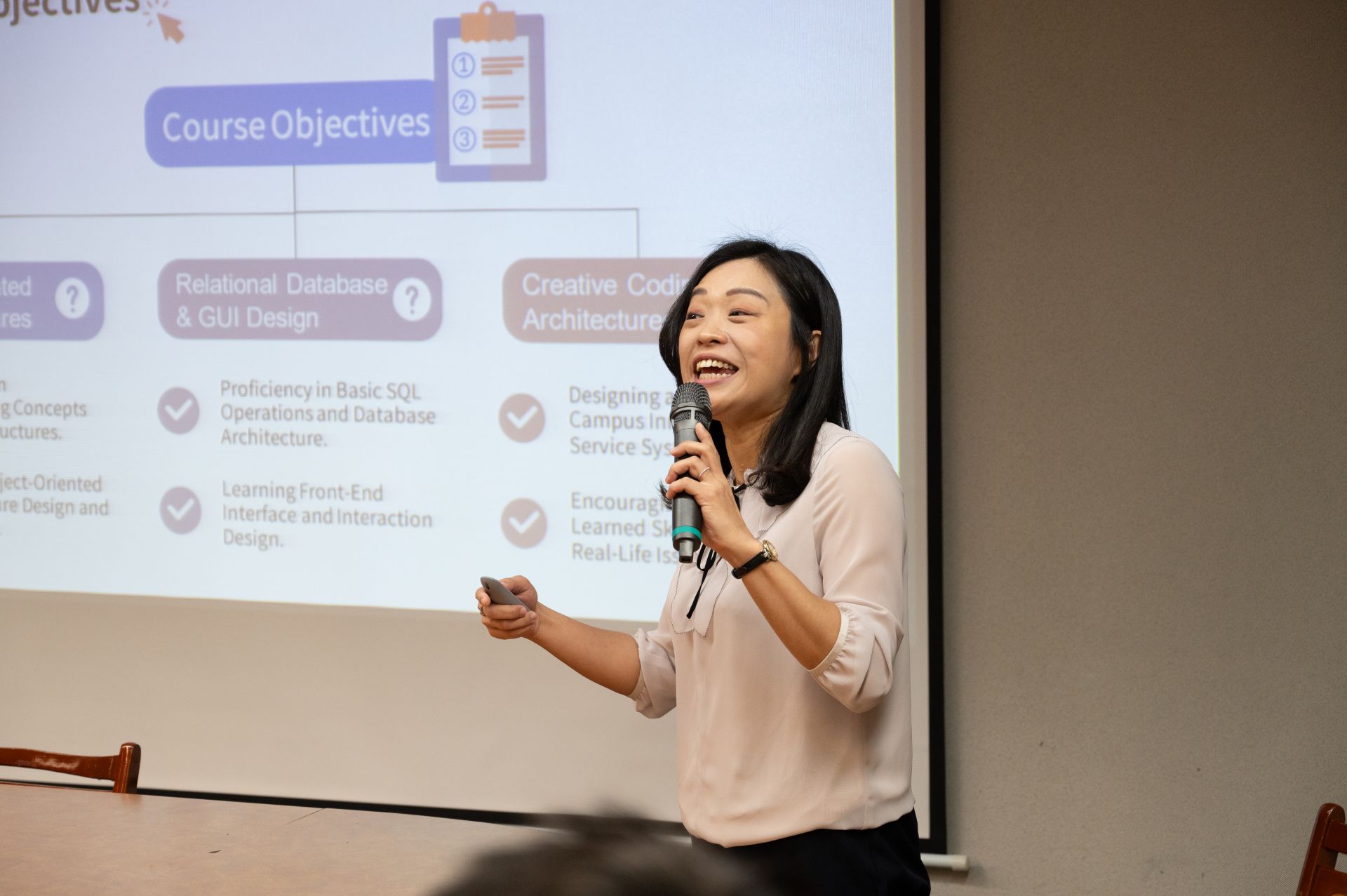
Associate Professor Yi-ling Lin from the Department of Management and Information System enthusiastically shares her EMI teaching experience in her Programming Language course. (Photo by EMI Resource Center)
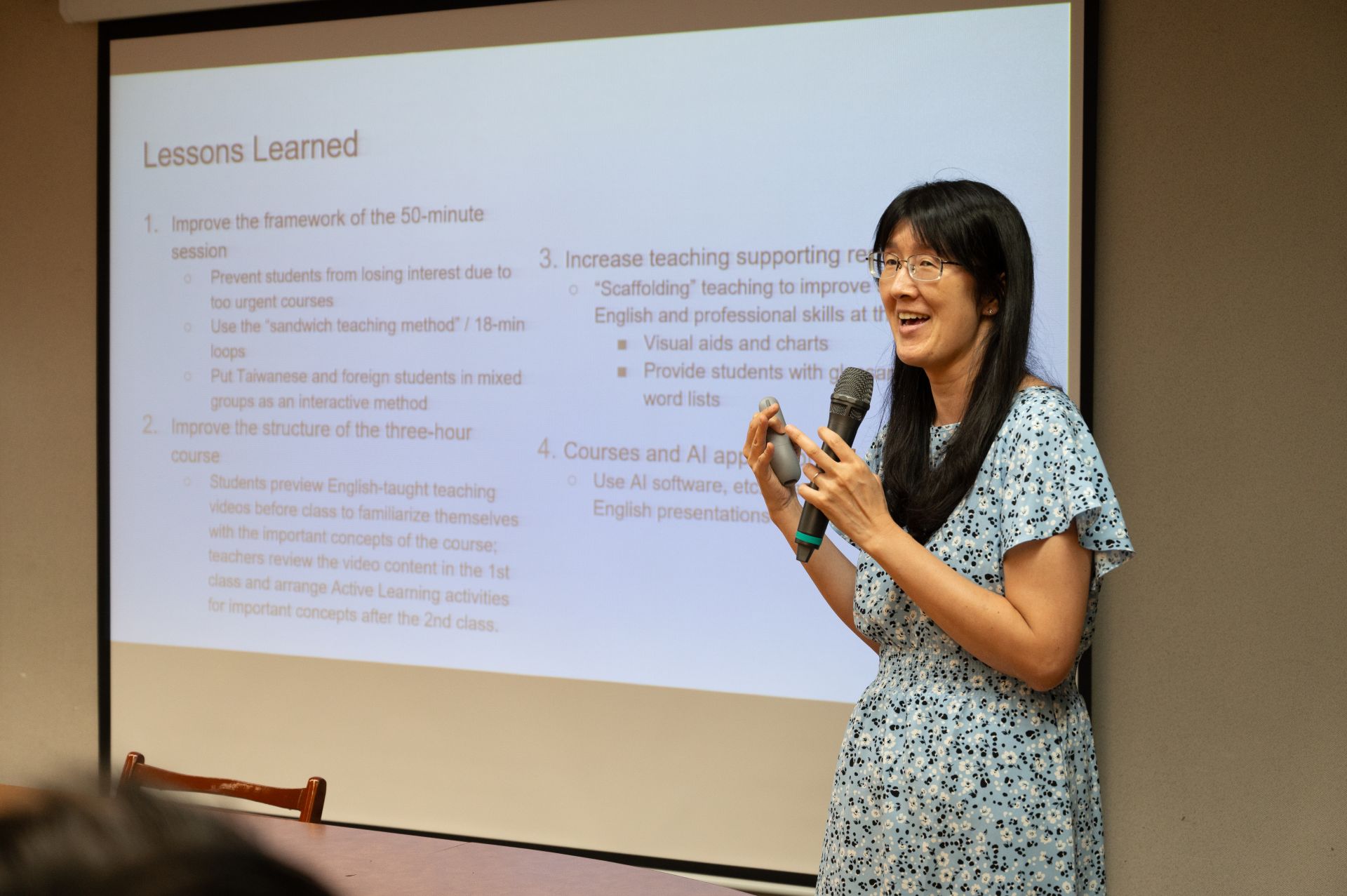
Associate Professor Yu-hsuan Su shares how the College of Social Sciences conducts EMI. (Photo by EMI Resource Center)
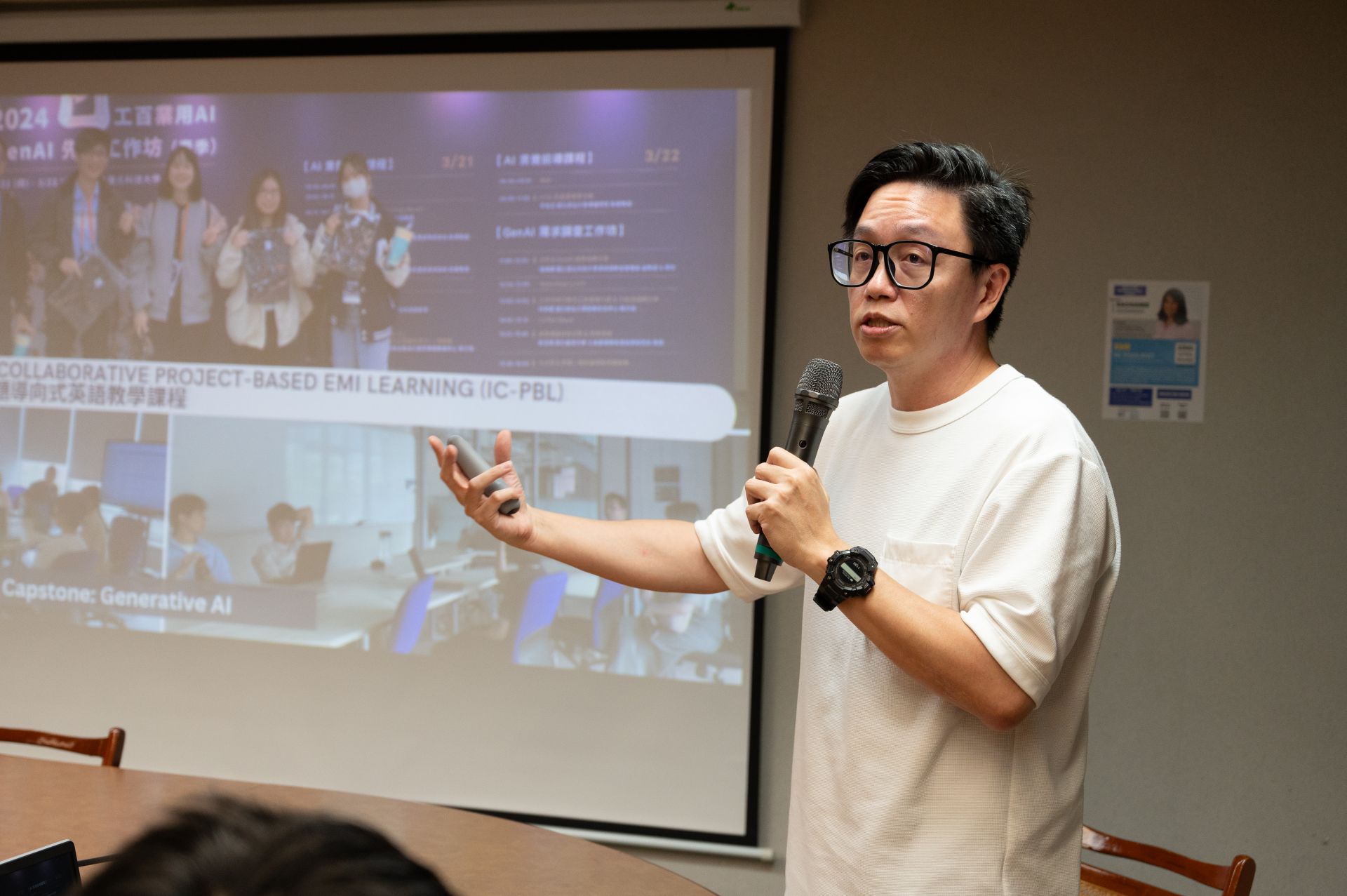
Assistant Professor Owen H.T. Lu shares his professional EMI teaching experience in the International College of Innovation. (Photo by EMI Resource Center)
